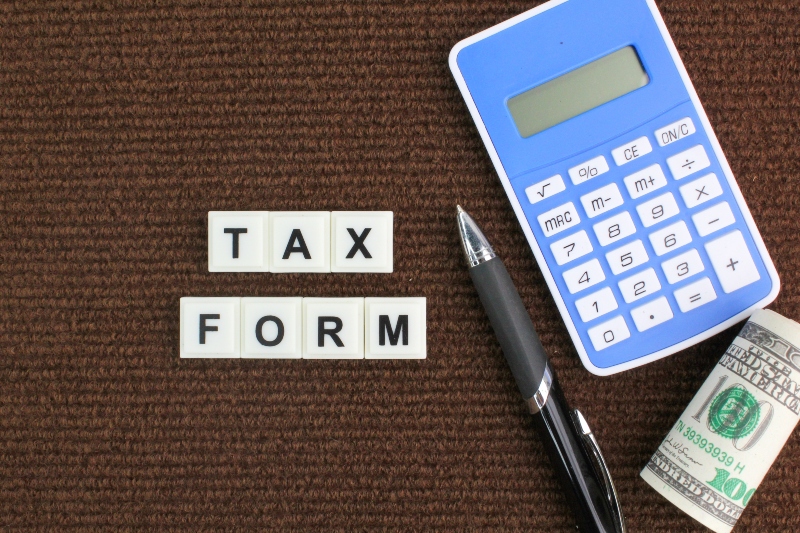
Form 1099-K is certainly not a new form in annual income tax preparation. However, rule changes in the past several years have put this form in the spotlight.
Starting in the tax year 2023, small businesses, self-employed individuals, and anyone who has freelance work or side gigs will receive one or more 1099-Ks. Therefore, it’s important to know this form’s fundamentals well before your income tax planning.
An expert in tax services (Dallas based or anywhere in the country) can help you weed through the details and pinpoint how form 1099-K may impact your bottom line.
However, in the meantime, it’s helpful to brush up on the basics. It is important to understand whether form 1099-K will be a part of your annual tax preparation documentation in the months and years to come.
What is Form 1099-K?
According to the Internal Revenue Service (IRS), Form 1099-K Payment Card and Third-Party Network Transactions is an IRS information return that is used to report certain payment transactions to improve voluntary tax compliance. In layman’s terms, this means that Form 1099-K tracks all of the gross payments you receive throughout the year through a payment card or a third-party payment network.
Traditionally, this included credit card processors. However, in our modern era, it includes many apps and online platforms such as PayPal, Venmo, or e-commerce sites like eBay, Etsy, and Poshmark.
Recent Changes with Form 1099-K
The American Rescue Plan Act of 2021 changed the reporting threshold for these third-party payment providers. Before this act, a 1099-K was required for gross payments exceeding $20,000 and entailing more than 200 transactions.
However, the new rules state that a 1099-K is required for transactions totaling $600 or more from a single third-party payment provider.
The rule was supposed to go into effect this past year. However, on December 23, 2022, the IRS stated that the new $600 rule would be delayed and that the previous rules would apply to 2022 returns.
Even so, starting in 2023, taxpayers who receive payments from any online platform should start keeping track. Furthermore, this income and/or funds received will likely impact your annual taxes when the 2024 tax season rolls around.
Why are the 1099-K Changes Important?
The main reason why the 1099-K change is important is that it will impact a much larger number of people, and possibly in varying ways. Self-employed and freelance workers, or any individual who makes money with a side gig – such as selling items on eBay or driving for Uber or Lyft – will likely receive one or multiple 1099-Ks at the end of the year.
Tips on How to Handle a 1099-K Form
The 1099-K form may add an extra layer of confusion to your annual taxes. This is especially true if you have never received a 1099-K form prior to this coming year. However, there are a few things to remember that you can do now to mitigate the legwork involved in incorporating 1099-K forms into your annual income tax planning and preparation.
Be Careful Not to Double-report Your Income
With the 1099-K form in play, you may receive double reports of your income from a client or business. For example, let’s say that you performed $1,000 of work for a particular client, and that client paid you via a third party, like PayPal. The client will likely send you a 1099-NEC form which accounts for the $1,000. However, you may also receive a 1099-K with that same $1,000 included due to the PayPal connection.
If you work for multiple businesses or clients and receive multiple 1099 forms, ensure the income you report does not overlap.
Try Not to Mix the Personal and the Business When it Comes to Third-party Providers
Third-party payment providers (also commonly referred to as payment settlement entities or PSEs) do not distinguish between personal or business-related payments. If you receive payments for your business through a third-party provider like PayPal or Venmo, it’s important to have separate and distinguished accounts.
For example, perhaps you receive $100 for a birthday present or as reimbursement from a friend via Venmo. But you also receive payments from a client or business for work you performed via that same Venmo account.
The PSE does not recognize the differences between your personal and business payments, so $100 will be included in the total 1099-K amount. You certainly don’t have to claim that $100 as taxable income. However, any discrepancies between the income on your 1099-Ks and the income you report may send red flags to the IRS and could trigger an audit.
Enlist an Expert in Tax Preparation Services to Avoid Any 1099-K pitfalls
Your best bet for navigating the new 1099-K rules, and the many tax changes that ebb and flow throughout the year, is to enlist the expertise of a professional tax preparation services provider.
The 1099-K rule changes will affect millions of Americans and raise a wave of new questions.
What do you do if you earn extra income through a hobby? How can you establish tracking for personal versus business payments? How do your freelance or self-employed business deductions play a role, and what can you do to minimize the impact of extra income on your bottom line?
At Waters Hardy, we can answer all of these questions and more and provide guidance on the best next steps to ensure you aren’t blindsided when tax season rolls around.
There are a lot of scenarios and factors to take into consideration when it comes to the 1099-K form changes – as well as any individual tax situation. Our tax experts, based in Dallas, Texas, have the expertise to provide clear guidance on how you could be affected.
Reach out to us today to schedule an introductory appointment and to have your questions answered. At Waters Hardy, we can help you navigate any new or unusual tax situations to ensure that you reduce any potential risks and that your hard-earned money stays in your pocket.
